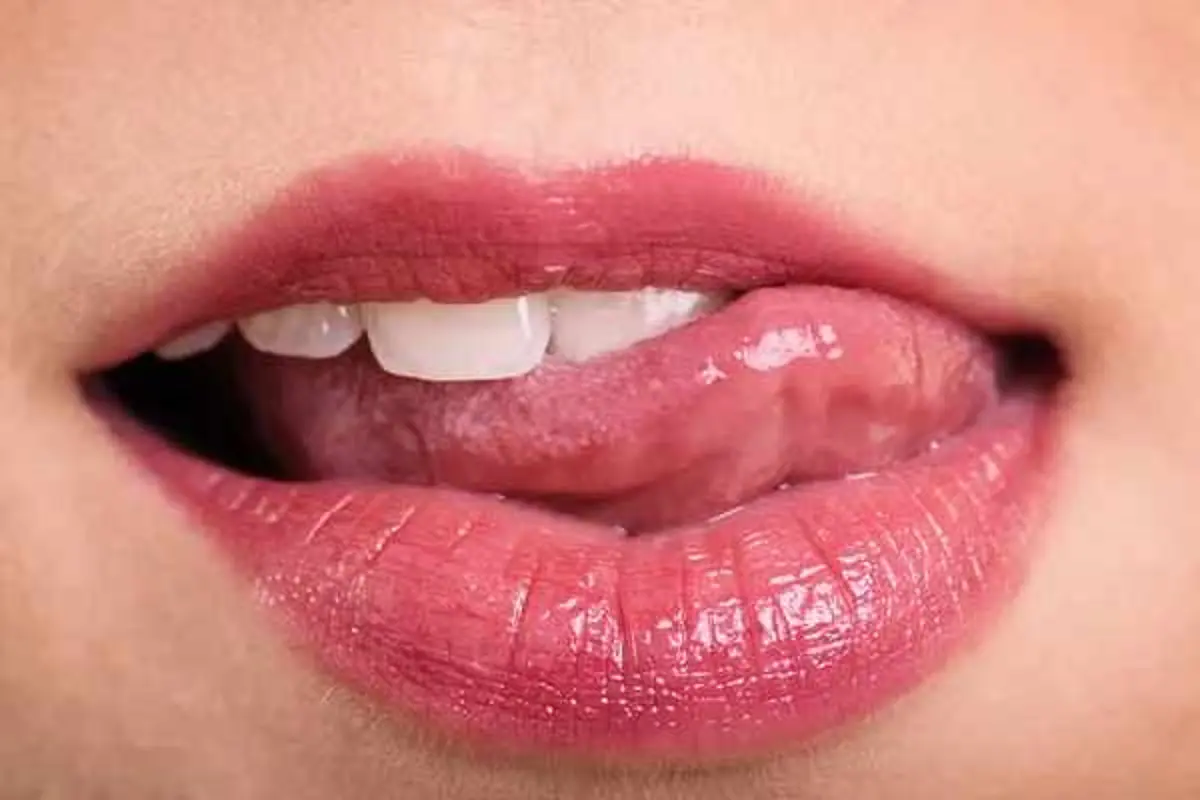An itchy tongue is often seen as having a deeper symbolic or spiritual meaning beyond just a physical sensation. Many spiritual traditions associate the tongue with communication, expression of truth, purification, and divine inspiration.
Communication and Self-Expression
In many cultures, the tongue represents our ability to communicate, speak our inner truth, and express ourselves. An itchy tongue could indicate a need to:
- Speak up about something that has been left unsaid
- Articulate thoughts, feelings, or beliefs more clearly
- Share a truth that has been held back or suppressed
It may suggest information trying to come through or something important needing to be voiced. The discomfort is like a nudge from the intuitive self reminding us to give voice to our authentic thoughts and feelings.
Cleansing and Purification
An itchy tongue can also symbolize the need for self-purification before clear communication is possible. In some spiritual circles, it indicates a build up of negative thoughts, energy, or verbal toxicity that requires release.
The itchiness prompts reflection on the words we have spoken, the intentions behind them, and whether any amends need to be made. This inner work helps clear the way for honest expression moving forward.
Awakening Psychic Senses
Some associate an itchy tongue with the opening of psychic abilities related to communication, like clairsentience (clear feeling) and clairaudience (clear hearing). It may suggest a greater trust in intuitive messages coming through.
The physical sensation grounds higher vibrational frequencies into the body, anchoring in spiritual insights and truths so they can be articulated and shared for the enlightenment of others.
Cultural and Religious Interpretations
Beyond personal spiritual growth, many cultures and religions have their own unique interpretations of the meaning behind an itchy tongue.
Chinese Culture
In Chinese culture, a tongue itch traditionally means someone is talking about you. This stems from teachings about energy meridians running through the body. The tongue represents the meridian connected to the heart, so an itchiness suggests your heart energy being affected by others discussing you.
Christianity
Some Christian mystics believe an itchy tongue indicates the presence of the Holy Spirit. It is seen as a sacred sign to speak the word of God, bear witness, or testify to spiritual truth. This ties to the Pentecostal belief that the Holy Spirit allowed the Apostles to speak in tongues.
Buddhism
In Buddhist tradition, an itchy tongue can indicate a “Shenpa” experience. Shenpa means attachment or fixation on discomfort. An itchy tongue may suggest being metaphorically “bitten” by a difficult situation or personal trouble and becoming attached to negative thoughts rather than letting them go.
Hinduism and Ayurveda
In Ayurvedic medicine, tongue problems indicate impaired digestion and toxicity needing to be cleansed from the body. An itchy tongue suggests aggravated Pitta dosha, associated with fire, irritation, infection, and inflammation. Remedies aim to soothe Pitta and purify the system.
What to Do if You Have an Itchy Tongue
If you experience an itchy tongue, here are some suggested spiritual responses:
Reflect
Examine your recent thoughts, emotions, and circumstances. See if you notice any connections to deeper issues wanting expression or old ways of communicating that need releasing.
Release
If anything feels toxic or blocked, take time to meditate, journal, or have a heart-to-heart with someone you trust. Let go of negative verbal patterns or self-limiting beliefs hindering your voice. Speak compassionately to make amends for harmful things said.
Listen Within
Pay attention to any intuitive hits, gut feelings, or messages received in dreams. Be open to new ways your guidance may be reaching you as your senses awaken. Seek confirmation in signs and synchronicities.
Express Creatively
Try creative activities like singing, dancing, painting, or free-writing to unlock expression. See what wants to flow through you. Find courage to share your gifts with those who can hold space for your continued growth.
How to Cure an Itchy Tongue
An itchy tongue can be cured by identifying and addressing the underlying cause. This may involve switching toothpastes if it’s an allergy, taking antihistamines for environmental allergies, adjusting your diet if it’s nutritional, or seeking medical treatment for an infection.
You can also try soothing remedies like cold foods, aloe vera gel, saltwater rinses, or OTC numbing gels. Pay attention to any triggers that make it worse. Managing stress levels can help too since stress can aggravate skin conditions.
If it persists, see your doctor or allergist to pinpoint the source. For spiritual interpretations, reflection, meditation, or ritual cleansing practices may provide relief.
Why is My Tongue Itchy?
There are several potential reasons for an itchy tongue, including:
- Allergies – Environmental allergies or oral allergies to things like toothpaste, mouthwash, or certain foods can cause an itchy tongue. This is a common cause.
- Infections – Oral thrush or other fungal/bacterial infections can lead to an itchy, irritated tongue.
- Geographic tongue – Benign inflammatory condition that causes map-like lesions on the tongue.
- Nutritional deficiencies – Lack of iron, folate, vitamin B12 or niacin can affect oral health and cause an itchy tongue.
- Dry mouth – Insufficient saliva can make the tongue prone to irritation and itchiness.
- Nerve damage – Damage to the lingual nerve can cause neuropathy leading to prickling, tingling, and itching of the tongue.
If the cause is unknown, see your doctor to rule out any underlying conditions.
Itchy Body Parts Meaning: Spiritual
In some spiritual traditions, an itchy area on the body is seen as having a metaphysical meaning related to energy blockages or imbalances in that bodily region.
For example, an itchy tongue is sometimes associated with communication, the need to speak one’s truth, or toxicity needing to be released through verbal expression.
An itchy roof of the mouth is linked to creative blockages and lack of spiritual nourishment. Itchy lips indicate gossip, arguments, or verbal deception. Itchy hands suggest healing abilities or financial flow wanting activation.
While scientific evidence for these spiritual interpretations is limited, the mind-body connection can be significant. Reflection on the meaning may provide insight during distress.
Itchy Roof of Mouth Superstition
In superstition, an itchy roof of the mouth is seen as a sign that someone is thinking or talking about you, whether positively or negatively.
This stems from ancient Chinese energy teachings about connected meridians. The mouth meridian relates to the stomach and nourishment, so an itchiness suggests your energy being “fed” by others’ attention.
While medically unproven, this superstition points to the universal human experience of sensing when we are being discussed. Paying attention to the timing of the itch can reveal interesting intuitions about our connections.
Itchy Lips Spiritual Meaning
According to spiritual lore, itchy lips indicate communication issues in relationships. Lip symbolism relates to how we take in or express verbal information.
Itchy lips suggest gossip, arguments, miscommunications, or the need to clean up one’s speech patterns and speak from the heart. They may signify deceptive or manipulative words being directed at you or vice versa.
Energetically, itchy lips represent the mouth meridian which connects to the stomach or “gut instincts.” It signals a need to listen to inner truth and express oneself authentically.
Spiritual Meaning of Burning Tongue
A burning tongue has several potential spiritual meanings:
- Cleansing through verbal fire – Getting things off your chest to purify relationships.
- Kundalini awakening – Increased energy rising up the body can cause burning sensations.
- Opening of chakras – Specifically the throat and third eye chakras related to communication and intuition.
- Receiving divine inspiration – A mystical call to prophetic speech and sharing of wisdom teachings.
- Warning against harmful speech – Cautioning against angry words that could damage connections.
Pay attention to any messages received during or after burning tongue episodes for guidance. Express yourself wisely and compassionately.
Why is My Tongue Itchy and Tingly
An itchy, tingly tongue is often caused by irritation of the numerous tiny sensory nerves on the tongue surface. Causes include:
- Oral allergies – To things like foods, toothpaste, mouthwash, or environmental irritants. Histamines released during an allergic reaction can affect nerves.
- Nerve damage – Injuries, vitamin deficiencies, autoimmune conditions, or diseases like diabetes can damage nerves.
- Hormonal changes – Shifts around menstruation, menopause, or pregnancy which affect tissue sensitivity.
- Anxiety – Stress and anxiety alter nerve firings, causing prickling, tingling, and itching sensations.
See your doctor to pinpoint the root cause. Antihistamines, nerve medications, supplements, diet changes, or stress relief may help alleviate the discomfort.
Conclusion
In many spiritual traditions, the tongue is seen as a channel between our inner and outer worlds. An itchy tongue signals that it’s time to clear out old energy and make way for truthful, heart-centered communication. Pay attention to any messages surfacing and find healthy outlets for what wants expression. Keep following the call inward and sharing your unique gifts outward.
FAQs
What does a itchy tongue mean?
An itchy tongue can have several meanings:
- It often indicates oral allergies, especially to certain foods, spices, toothpastes etc. This is called oral allergy syndrome.
- It can result from infections like oral thrush or geographic tongue.
- An itchy tongue may be caused by vitamin deficiencies, hormone changes, diabetes, anxiety, nerve damage etc.
- In some spiritual traditions, an itchy tongue has symbolic meaning related to communication issues, the need for self-expression, toxicity needing verbal release etc.
What does it mean when my tongue itches spiritually?
Spiritually, an itchy tongue is often seen as a sign that there is a need to:
- Speak one’s truth or express thoughts that have been unsaid
- Purify one’s communication by releasing toxic verbal patterns
- Open up psychic senses related to clear communication
- Trust messages coming through from spiritual guidance
It suggests something wanting expression or a nudge to voice inner authenticity.
What is the home remedy for itchy tongue?
Some home remedies to soothe an itchy tongue include:
- Cold foods like popsicles or ice chips
- Saltwater rinses
- Aloe vera gel
- OTC numbing gels or sprays
- Avoiding any trigger foods/allergens
- Drinking plenty of water
- Gently brushing the tongue
Antihistamines can also help relieve itchiness caused by allergies. See your doctor if symptoms persist.
What virus causes itchy tongue?
While no virus directly leads to tongue itching, viral infections like cold, flu etc affecting the respiratory tract can sometimes cause general itchiness, pain or irritation in the mouth region including the tongue.
This is due to inflammation triggered by the virus rather than a direct action on the tongue. It should resolve as the viral infection clears.
Citations:
[1] https://www.gyanbooks.com/index.php?Book=Spiritual+Meaning+of+Itchy+Tongue&Field=bookcode&String=1111033398537&format=fullpage&p=sr
[2] https://spiritualhints.com/spiritual-meaning-of-itchy-tongue/
[3] https://tucsonspiritualdirection.org/spiritual-meaning/itchy-tongue




